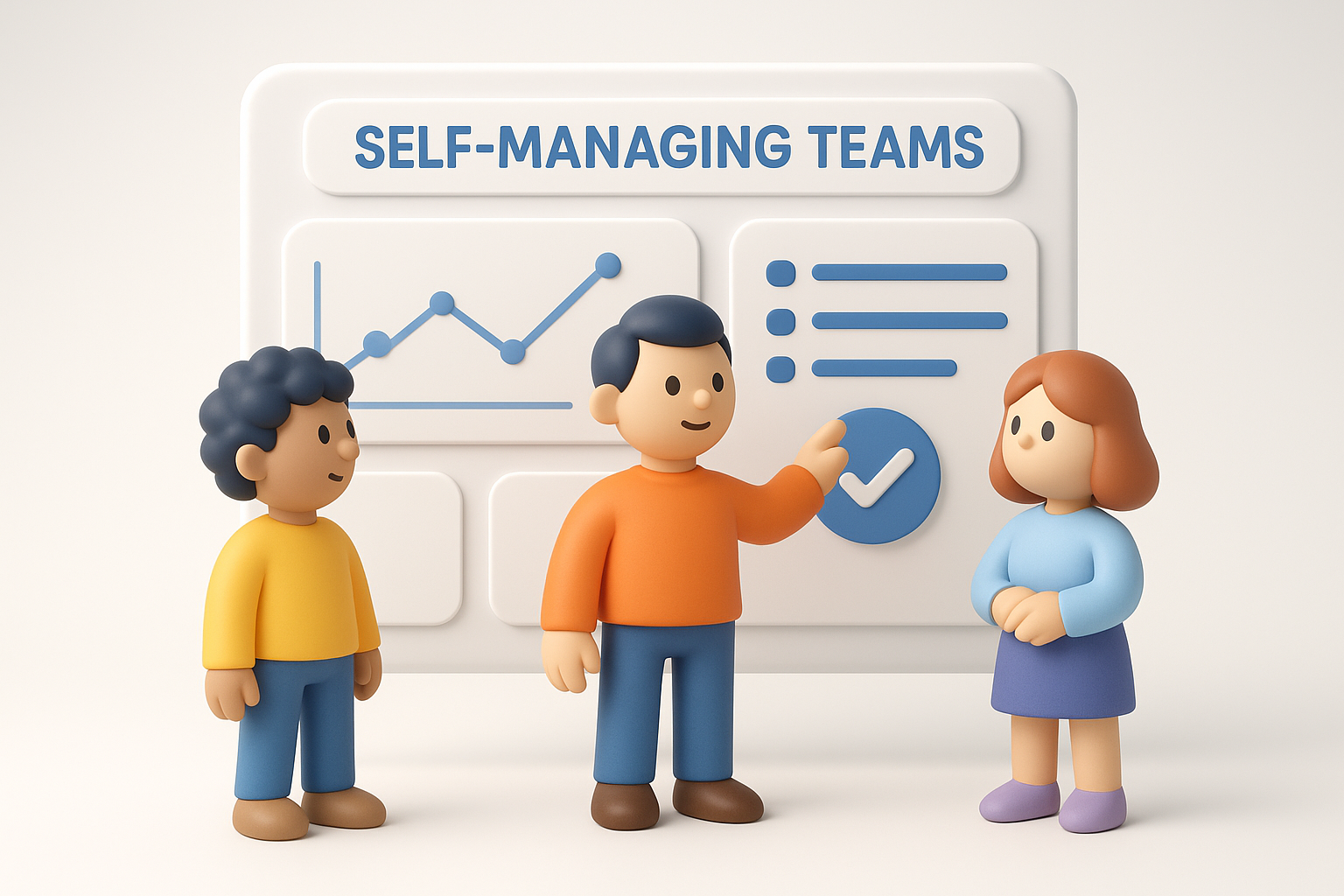
Click the button to start reading
From Stuck to Success: 11 Proven Strategies to Get Rid of Mental Blocks
Imagine being trapped in a maze — with towering walls standing in your way.
Should you turn back or face the challenge head-on?
Powerful strategies to remove mental blocks are here to help you push forward. These techniques allow you to view difficulties as opportunities for growth and fight the obstacles that block your progress.
Join us as we reveal the five types of mental blocks, provide examples, and share eleven strategies to break through your mental blocks. Get ready to unlock your inner potential and pave your way to success!

Definition first: What is a mental block?
Mental blocks are like a thick fog. They hide the path to our desired destination and limit our ability to see what we’re capable of.
Formally, mental blocks refer to a psychological phenomenon where you experience a temporary inability to perform a task. Often, we describe this feeling as being “stuck”.
Academics, work, or creative pursuits… Mental blocks can occur in various contexts, and they come in all types and shapes.
If you believe you’re stuck, you should first consider understanding the types of mental blocks to be able to overcome these barriers.
Five major types of mental blocks
1. Value conflict block
Look deeper into what you want to achieve and what you perceive as morally right.
Is there a conflict between these two?
If yes, most probably, what you do clashes with your core values and beliefs. Consequently, this creates a mental barrier, making it challenging to move forward.
Example of a value conflict mental block
People working for tobacco companies may face a significant value conflict due to the harmful effects of tobacco products.
You may be tasked with promoting and selling tobacco products. But you may struggle with the ethical dilemma of promoting products that you believe cause harm to individuals and society. This conflict can impact your motivation, job satisfaction, and overall well-being.
Questions to ask to get rid of the mental block:
- Can I find any potential compromises or alternative approaches that align more closely with my values?
- Are there alternative career paths or opportunities that align more closely with my beliefs?
- Can I seek support from mentors, colleagues, or professionals who’ve faced similar value conflicts?
2. Emotional block
Past experiences, traumas, or unresolved issues… These can create barriers that get in the way of making decisions or solving problems.
In the case of an emotional block, you’re having intense emotions, such as fear, anger, or sadness, that hinder progress.
Example of an emotional block
Imagine a seasoned executive named Sarah who’s been in the business field for over a decade. Throughout her career, she’s faced both challenges and achievements. But one particular experience has created an emotional block for her. An encounter with a toxic and manipulative manager.
In her previous role, Sarah worked tirelessly on a project. However, her manager, driven by personal ambition, consistently undermined her efforts and took credit for her work.
This experience left Sarah with a profound sense of betrayal, insecurity, and distrust in her professional relationships. She began doubting her abilities, second-guessing her ideas, and struggling to assert herself in meetings. This emotional block didn’t allow her to take on leadership roles and limited her career progression.
Questions to ask to get past the mental block:
- What past experiences or traumas may have contributed to this emotional block?
- Are there any patterns or triggers that activate this emotional block?
- How can I challenge and reframe these beliefs or fears?
3. Knowledge or skill gap block
This block arises when you lack the necessary knowledge or skills to tackle a particular task or problem.
It can make you feel stuck or unable to make progress because you’re not equipped with the required information or abilities.
Example of a knowledge or skill gap block
Samantha is an entrepreneur who recently started her own e-commerce business. While she has a strong vision for her brand, she lacks the necessary skills to effectively promote her business online.
The knowledge or skill gap block significantly impacts Samantha and her business.
Firstly, she struggles to reach her target audience and navigate the complexities of online marketing channels. Moreover, she misses out on the chance to leverage social media platforms, search engine optimization, and targeted online advertising.
Questions to ask to get over the mental block:
- What specific knowledge or skills do I need to acquire to overcome this block?
- Can I turn to any specific courses, training programs or mentors to help me bridge this knowledge gap?
4. Environmental block
An environmental block occurs when external factors in your surroundings hinder your ability to concentrate, think clearly, or be productive.
Example of an environmental block
Daniel is a freelance graphic designer who typically works from home. However, living in a busy neighborhood, he often deals with loud construction noises, traffic sounds, and neighbors’ activities.
Additionally, Daniel struggles with a lack of dedicated workspace and resources. As a freelancer, he primarily relies on his personal computer and design software to complete his projects. Frequent computer crashes cause delays and frustrations. Plus, without a designated office space, Daniel works from his dining table. This often leads to interruptions from family members or household chores that demand his attention.
Not only do these environmental blocks impede Daniel’s ability to concentrate but they also limit his productivity and overall work quality.
Questions to ask to remove the mental block:
- Are there specific times of the day when my environment is less disruptive or more conducive to focused work?
- How can I effectively communicate with those around me, such as family members or roommates, to minimize interruptions?
- Are there alternative locations, such as libraries, coworking spaces, or coffee shops, where I can work (at least occasionally)?
5. Self-imposed pressure block
The fear of failure, perfectionism, or high self-expectations can create immense stress and anxiety, leading to a mental block.
So, sometimes, the obstacles we encounter originate from within us, not from external sources.
The self-imposed pressure block is all about putting excessive pressure on yourself to perform or achieve certain outcomes.
Example of a self-imposed pressure block
Alex is a driven and ambitious sales manager in a fast-paced corporate environment.
He constantly puts excessive pressure on himself to meet aggressive sales targets and outperform his colleagues. As a result, Alex experiences immense stress and anxiety, which creates a mental block that hinders his performance.
Due to his self-imposed pressure, Alex feels constrained by the fear of making mistakes or falling short of his goals. This fear leads to exploring new approaches, limiting his problem-solving abilities.
Questions to ask to clear the mental block:
- What are the underlying beliefs or fears that drive this need for perfection?
- How can I redefine success and set more balanced and realistic goals for myself?
- Can I embrace mindfulness in sales?
- What if I learn from mistakes rather than fearing them?
Recognizing the type of mental blocks you’re facing can help in finding targeted strategies to overcome them. This leads us to our next section, where we’ll explore the eleven best strategies for getting over mental blocks.

Breaking down the walls: Actionable strategies to get over mental blocks
Getting past mental blocks requires a combination of self-awareness, patience, and strategic approaches. Here are tried-and-tested strategies that can help you overcome mental blocks:
1. Get clear on why
Why do you really want something?
Understanding the motivations and reasons behind your goals can provide a source of inspiration and drive. When you have a sense of purpose, it becomes easier to overcome mental blocks. Remind yourself of the value of your desired outcome and let it fuel your determination and resilience.
2. Change the way you view the problem
Shifting your perspective on the problem can help you understand how to clear mental blocks.
Instead of viewing the situation as an impossible obstacle, try to see it as a chance for improvement. Seek alternative viewpoints, explore different angles, and embrace a mindset of curiosity and flexibility. This can open up new possibilities and solutions that were previously hidden, allowing you to overcome the mental block.
3. Make daily affirmations
A study conducted in 2019 revealed something remarkable.
Researchers found that students who recited a self-affirming statement before giving a speech or presentation experienced significantly less performance anxiety compared to their counterparts who didn’t do the same. This suggests that positive self-talk can have a powerful impact on our ability to overcome anxiety.
Affirmations are positive statements that can help rewire your subconscious mind and replace negative thought patterns with empowering beliefs.
By affirming positive statements related to your abilities, you can gradually shift your mindset. Soon, you’ll enjoy a more positive and supportive internal dialogue. This can help to deal with mental blocks and cultivate a mindset of confidence and possibility.
4. Take a break
Stepping away from the problem can provide a fresh perspective and allow your mind to recharge.
Engage in activities that relax and rejuvenate you. For example, go for a walk, practice mindfulness, read books, watch movies, or visit art exhibitions.
Often, during these moments of relaxation, your mind continues to process information and make connections, leading to breakthroughs when you return to the problem later.
5. Change your environment
Sometimes, a change of environment can help break through a mental block. Find a quiet and inspiring space where you can focus better, rearrange your workspace, or try working in a different location altogether.
6. Collaborate and seek feedback
Even if you don’t feel ready to ask for support, there are people who can be helpful.
Remember this: we’re social creatures. We’re wired for social interaction. And having a talk with someone you trust can give you new insights and stop mental blocks. So, start by removing communication blockers. Discuss your ideas and challenges with colleagues, mentors, or friends who can provide fresh ideas and suggestions.
7. Externalize your thoughts
Sometimes, mental blocks can feel overwhelming when they remain confined to your mind. Externalize your thoughts by writing them down or recording voice memos. This externalization helps create distance from the block and allows you to gain a clearer perspective.
8. Role reversal
Let’s say you have a fear of public speaking that is holding you back from advancing in your career.
Instead of dwelling on your anxiety and avoiding opportunities to speak, imagine yourself in the mindset of a confident and charismatic speaker you admire. Embrace their thought processes and strategies. By adopting their perspective, you can gain the courage and motivation to overcome your fear and get rid of mental blocks.
9. Create a mind map
Mind mapping is a visual technique that involves creating a visual representation of your thoughts, ideas, and connections.
Start with a central concept or problem and branch out with related ideas, associations, and potential solutions. Mind mapping encourages non-linear thinking and helps you generate new insights and perspectives. And, ultimately, reveal the path for how to clear mental blocks.
10. Practice mindfulness and relaxation techniques
Engaging in mindfulness exercises, deep breathing, or meditation can help calm your mind, remove stress, and improve focus. These techniques can alleviate the pressure and anxiety associated with mental blocks, allowing your thoughts to flow more freely. Obviously, this is an essential step towards finding solutions and discovering how to break mental blocks effectively.
11. Embrace imperfection
Let go of the desire to be perfect and focus on progress rather than flawless outcomes. Remember this: mistakes and failures are part of the learning process. Embracing imperfection can relieve the pressure and allow you to move forward with more ease.
Conclusion
Remember the words of Rainer Maria Rilke, “The only journey is the one within.” It’s within yourself that you’ll find the courage and determination to conquer challenges.
So, embrace the journey, discover your unique path to breaking mental blocks, and become the hero of your own story. Once you set your mind free, there is no limit to what you can achieve!
















